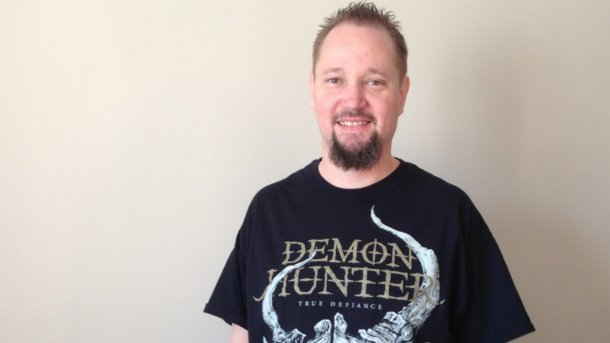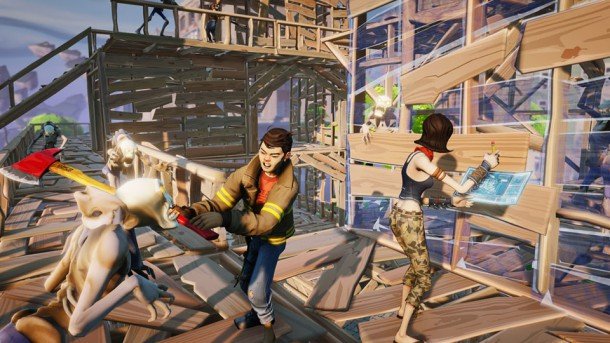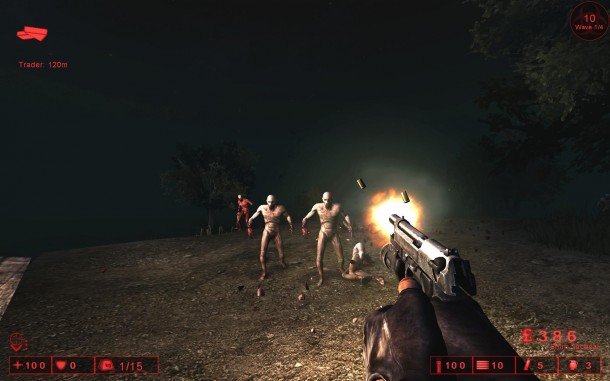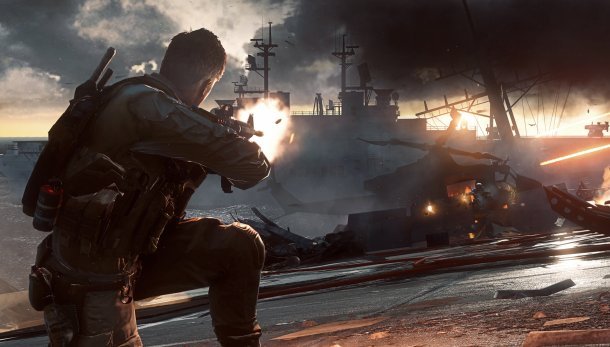Interview with Tripwire's John Gibson: "Microsoft's done their best to kill gaming on PC for as long as I can remember"

In April, I spent an entire day at Tripwire Interactive's office in Atlanta, Georgia getting the first look at Killing Floor 2 . We talked about KF2's new gore system (enemies burst apart dynamically in 19 places), blood system (every drop of blood stays on the map for an entire match), and new guns, which live up to Tripwire's reputation for accuracy .
I also spent a good deal of time talking to Tripwire president John Gibson about PC gaming at large—his thoughts on SteamOS and the Steam Controller, Epic's Unreal Engine 4, and Battlefield 4's ongoing issues . As always, he had strong opinions about the present problems and future possibilities of PC gaming. His boldest prediction: almost every PC game will end up on Linux eventually, and PC gaming will thrive as a result.
Wes Fenlon, PC Gamer: Killing Floor 2 runs on Unreal Engine 3. Tripwire started as an Unreal Tournament mod team. I'm curious what you think of Unreal Engine 4 and the announcement they made recently that it's like $19 a month to license it.
John Gibson: I think that's really cool, and it's really smart. What it does for companies like us that use Unreal tech, is it helps ensure that there will be a stream of people that have the skillset in the engine that the pros are using. Typically in the past that kind of came from the mod community, and I think if anybody can pick it up and start using it, start learning it, that's a smart move on Epic's part. When they're selling their game engine they can say hey, there's all these people that know it.
And for independent developers, it gives them a point of entry for developing their games that might not have been there before. Not a lot of indie developers can come up with hundreds of thousands of dollars that it would take to do a standard commercial license of the engine.

Regarding us using UE4, we gave some consideration to UE4, but we had a couple concerns with using it, especially early on. We were really fearful the performance wouldn't come in line with the minimal spec of a machine this game would run on. One of the reasons we believe Killing Floor 1 was so successful [despite using] older tech—it could run on a broad range of peoples' machines.
So while we want to push the graphical high end with a lot of features we're doing, we also want to ensure that on the lower end, a lot of people can still run the game. Especially when we looked at UE4 really early on, it was quad core min spec and all these things, and we wanted to support dual core. There have been some optimizations [in UE4] since then.
Keep up to date with the most important stories and the best deals, as picked by the PC Gamer team.
The other thing is, if you're licensing someone else's game engine, it's always a risk to ship a game before they've shipped a game on that tech. Not knowing when Epic would actually ship something on their own tech, it was quite possible we'd ship KF2 before they even shipped a game on UE4. It's really dangerous to ship on an engine that's not a stable platform.

If you look at the Call of Duty games—I used to look at them and say "how are they able to create so much content in such a short amount of time?" Well, I'll tell you how. They've been using the Quake 3 engine since 2002 and they've just upgraded the physics and the graphics, upgraded their core technology, but every game they had something they could build on top of. With Red Orchestra 2 and Rising Storm, we developed core tech for weapons and collisions, and we're able to bring a lot of that into Killing Floor 2. If we'd gone straight to UE4, it would've been start from scratch again.
PCG: You've talked about learning to control the scope of your projects, which was a hard lesson for Tripwire with Red Orchestra 2. I'm curious what you think about companies like DICE making these gigantic games that end up being super buggy [like Battlefield 4]. Do you think that's them losing sight of that self control?
JG: I think that's totally publicly owned companies. For us, because we're self-funded, we can't go on forever, but we've been successful enough, and we're conservative enough with our finances, that we can work on our games for a long time, until they're ready. But with a publicly owned company, you have to make the holiday rush. You have to ship before black Friday. A game like Battlefield 4 being as buggy as it was, it was 100% shareholder driven, the game has to ship come hell or high water.
Those guys have been making games long enough, they should know better. It's not like they didn't know. It's not like their QA didn't know. I'm sure there was somebody in their building, their QA manager, going "But look at this!" and then the EA shareholder going "But look at black Friday."

The thing you see with EA is—they have a strategy. They're going to take out Call of Duty. And that means the release of a military FPS every single year. Their plan was going to be Medal of Honor, Battlefield, Medal of Honor, Battlefield so they could go up against Call of Duty's Infinity Ward, Treyarch cycle. We didn't really learn until Red Orchestra 2 [that] putting arbitrary stakes in the ground, saying "we will ship the game by this date no matter what," it's just stupid. You're just guaranteeing you're going to release a buggy or unfinished game if you do that.
That's not to say you don't set deadlines, but those deadlines have to be your internal deadlines. You say "we are going to get X done by this point." But if it's going to go out to customers, it has to be done. That's why games from Valve and Blizzard are so polished. They work on them until they're ready to ship. One of the guys from Valve told me something when I was talking about releasing one of our games and asking if it's ready. They told me a game's only late until it ships, but a buggy release is a buggy release forever.
On page two, Gibson talks about Tripwire's experience with the Steam controller and why he hopes Linux takes over PC gaming from Windows.

Wes has been covering games and hardware for more than 10 years, first at tech sites like The Wirecutter and Tested before joining the PC Gamer team in 2014. Wes plays a little bit of everything, but he'll always jump at the chance to cover emulation and Japanese games.
When he's not obsessively optimizing and re-optimizing a tangle of conveyor belts in Satisfactory (it's really becoming a problem), he's probably playing a 20-year-old Final Fantasy or some opaque ASCII roguelike. With a focus on writing and editing features, he seeks out personal stories and in-depth histories from the corners of PC gaming and its niche communities. 50% pizza by volume (deep dish, to be specific).

